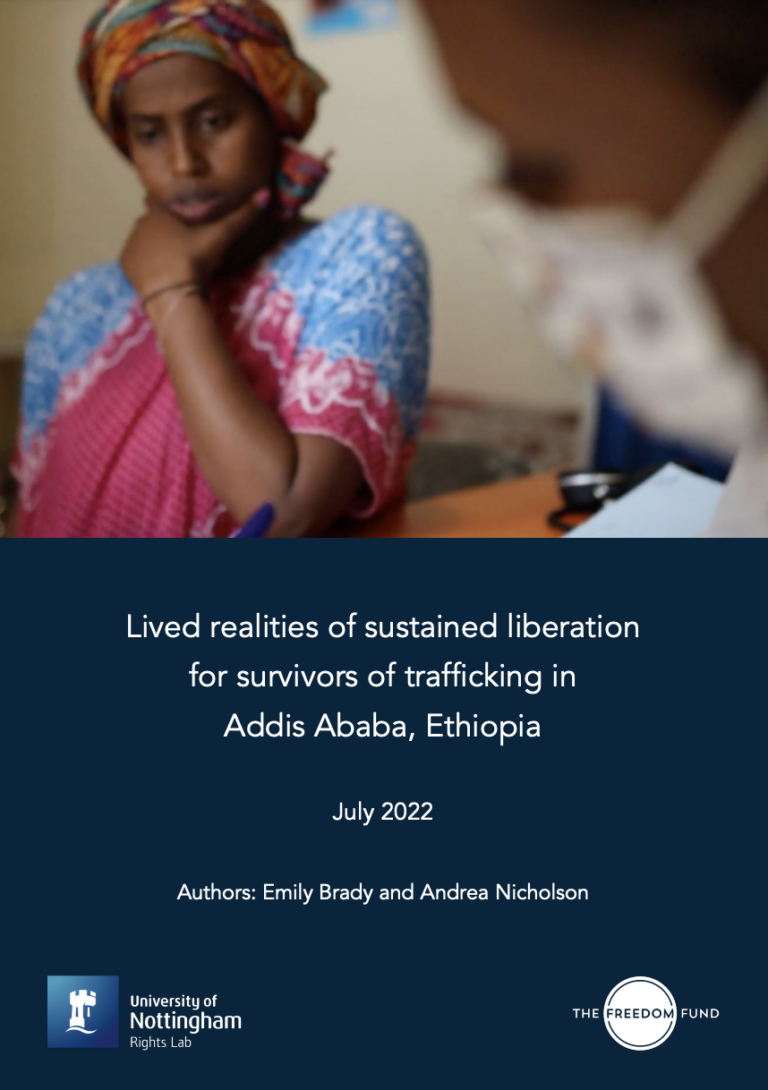Many women and girls in Ethiopia work as domestic workers in urban cities as well as abroad, particularly in the Middle East. The conditions faced by women and girls in domestic work are well documented (see Freedom Fund 2019 and Tayah & Atnafu 2016), including harmful working and living conditions, economic exploitation, as well as emotional, physical, and sexual violence – in many cases amounting to human trafficking.
Many of the women and girls who have suffered abuse as domestic workers end up in the care of local non-governmental organisations (NGOs) and are provided with mental health services, financial support, education, and training, as well as organised into local collectives for mutual support and joint advocacy. The primary aim of these NGO services is to support victims to exit situations of exploitation, aid survivor healing and recovery, and to assist their reintegration into the local community and to live a life free from abuse.
This study set out to assess the reality of liberation as defined and experienced by survivors of human trafficking. The study assessed the situations of survivors one to two years after they had received reintegration support provided by four NGOS in Addis Ababa and Kombolcha: AGAR Ethiopia; Beza Posterity Development Organisation (BPDO); Mission for Community Development Programme (MCDP); and Organization for Prevention, Rehabilitation, and Integration of Female Street Children (OPRIFS).

